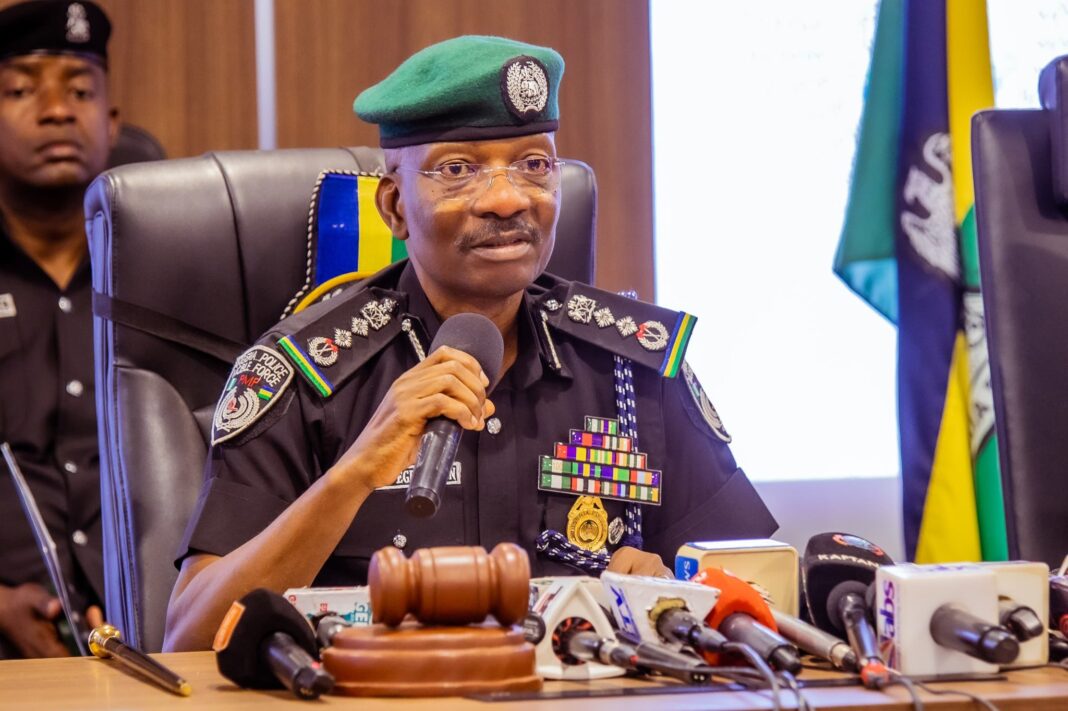The Inspector-General of Police (IGP), Kayode Adeolu Egbetokun, Ph.D., NPM, has approved a major restructuring within the Nigeria Police Force (NPF), creating new directorates and appointing senior officers to key positions — in line with his commitment to reforms and improved welfare for police personnel.
According to an official statement signed by CSP Benjamin Hundeyin, Force Public Relations Officer, Force Headquarters, Abuja, the IGP has upgraded the Force Medical Section to a full-fledged Directorate, named the Directorate of Force Medical Services.

New Appointment
AIG Nkechi Eze, BDS, MPH, fspsp, has been appointed as the Pioneer Director, Force Medical Services Directorate.
AIG Eze, a seasoned clinician, dental surgeon, and administrator, brings over 27 years of professional experience to the role.
Born in Umuahia, Abia State, and originally from Agbudu, Udi LGA, Enugu State, she earned her Bachelor of Dental Surgery (BDS) from the University of Ife (now Obafemi Awolowo University) and a Master’s in Public Health (MPH) from the University of Benin.
Her career spans several states including Oyo, Ekiti, Rivers, FCT, and Lagos, where she played pivotal roles in advancing police medical services and improving officers’ welfare.
In his congratulatory message, IGP Egbetokun urged AIG Eze to use her expertise to reposition the Directorate as a model of excellence in police healthcare delivery, emphasizing that officers’ well-being is central to operational efficiency within the Force.

Structure of the Nigeria Police Force
The Nigeria Police Force (NPF) operates under the authority of the 1999 Constitution (as amended) and the Police Act, which define its command, administrative, and organizational structures.
A. Command (Authority) Structure
Under Section 215(2) of the Constitution, the Nigeria Police is commanded by the Inspector-General of Police (IGP), with a hierarchy of authority that ensures discipline and operational efficiency.
Command Hierarchy
-
Inspector-General of Police (IGP)
-
Deputy Inspector-General of Police (DIG)
-
Assistant Inspector-General of Police (AIG)
-
Commissioner of Police (State Commands)
-
Deputy Commissioner of Police (DCP)
-
Assistant Commissioner of Police (ACP)
-
Chief Superintendent of Police (CSP)
-
Superintendent of Police (SP)
-
Deputy Superintendent of Police (DSP)
-
Assistant Superintendent of Police (ASP)
-
Inspector of Police
-
Sergeant Major
-
Sergeant
-
Corporal
-
Constable
Orders and directives flow strictly through this chain of command, and any form of disobedience attracts disciplinary sanctions.

B. Administrative Structure
The Nigeria Police is divided into eight (8) key departments (Directorates), each handling specific administrative and operational functions:
1. Department of Finance and Administration
-
Oversees budgeting, discipline, welfare, and internal regulations.
-
Coordinates all Force-wide administrative and financial matters.
2. Department of Operations
-
Handles internal security, riot control, counter-terrorism, and traffic management.
-
Coordinates national emergency responses and special tactical operations.
3. Department of Logistics and Supply
-
Manages procurement, building projects, maintenance, and distribution of police equipment.
-
Oversees police vehicles, weapons, and uniforms.
4. Force Criminal Investigation Department (FCID)
-
Responsible for criminal investigations, forensics, anti-narcotics, Interpol coordination, and prosecution.
5. Department of Training and Development
-
Oversees police colleges and training schools.
-
Develops training policies, research, and professional development programs.
6. Force Intelligence Department (FID)
-
Gathers, analyzes, and disseminates criminal intelligence.
-
Tracks organized crime syndicates and cross-border criminal activities.
7. Department of Research and Planning
-
Conducts research, planning, data management, and policy development for modernization.

8. Department of Information and Communication Technology (ICT)
-
Manages police communication systems, data networks, and technology infrastructure.
-
Operates critical digital tools like the Biometric Central Motor Registry (BCMR) and Automatic Fingerprint Identification System (AFIS).
-
Develops ICT policies and ensures officers are trained in modern digital policing.
9. Office of the Force Secretary
-
Handles appointments, promotions, discipline, and deployment of senior officers.
-
Coordinates inter-ministerial matters and Police Council meetings.
C. Organisational Structure
The operational organization of the Police mirrors Nigeria’s federal structure for nationwide coverage and effectiveness.
Levels of Command
-
Force Headquarters – Abuja (National Command)
-
Zonal Headquarters – Regional oversight
-
State Command Headquarters – State-level command
-
Divisional Police Headquarters – Local command
-
Police Station – Community policing unit
-
Police Post / Village Post – Grassroots presence
This hierarchical organization ensures that law enforcement services reach every community, promoting internal security and effective coordination with other national security agencies.
In summary, IGP Kayode Egbetokun’s expansion of the Police Directorates — particularly the creation of the Force Medical Services Directorate — reflects a progressive step toward institutional reform, welfare improvement, and modernization of the Nigeria Police Force in line with global policing standards.




